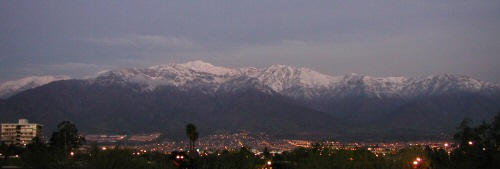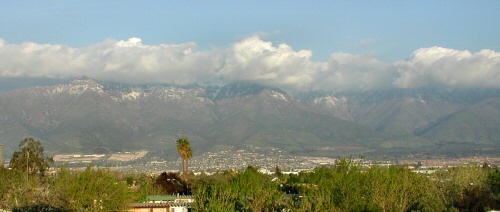My conversation with William Greider went well. We spoke at length about my favorite topics.
I am sorry to say I did not learn a great deal though, not through any fault of his, but because our views were so similar it was almost like listening to myself, albeit perhaps more eloquently.
Mr. Greider wrote a book I read recently called The Soul of Capitalism. It contains some commentary about the inhuman aspects of capitalism but mainly focuses on stories about people, businesses and communities that are finding ways within the current system to make capitalism work for us, instead of us always working for it.
It is an inspiring book, just to know there are people out there who still believe there is more to business than making a buck…and are actually doing something about it.
Our conversation centered around two questions that have been bugging me of late:
1) Are we choosing all this?? Are we choosing shallow lives based on consumerism? Are we choosing work over family and friends? Why do we continue to believe in the American Dream when the reality is that we work ever longer hours in households that now require two wage earners to maintain? Is that really an advancement in quality of life?
2) Does the free market work? This is a more philosophical, academic question, but it does have important implications. It tells us where we should look if we want to see a change, either to the market or the government depending on whether you think the market works. It also touches on a more fundamental question that I think we should be asking: What is an economy for?
So are we choosing all this? There are two real options here:
1) Yes we are. If this is the case then it doesn’t say much about human nature. Every piece of information I gather points to the fact that people would like to work less, get in shape, spend more time with family, feel less stressed, and take more vacation. The reality is they are working more, getting fatter, spending less time with loved ones, feeling more stressed and taking no vacation at all. If we are indeed willingly doing one while saying we would like the other….then that makes us either liars and hypocrites or lacking the backbone to step up and demand a change.
The flip side I suppose is that we would like life to reward our more human side a little more but reality demands us be slaves to the economy. This is a possibility. After all, no one ever promised life would be a bed of roses. Better to be a slave to the economy that to be a slave to land you farm (which could starve you to death in a bad year) or worse yet to be an actual slave.
In the past I would have bought this argument. Life has been a crap shoot for most of human history. But that is no longer the case. We need not work ourselves to death or really even work that hard at all.
The US GDP is over 10 trillion dollars. That is about twice as large as the next biggest economy (China) and three times as large as the third (Japan). GDP per person is $36,000 a year. Only Luxembourg ranks ahead of us. All the top six (except for us) are small countries that are either banking capitals or tax havens.
We have so much fucking money it is ridiculous. In 2001, Americans spent 25 billion dolllars on recreational watercraft. That is more than the GDP of North Korea. The average household income is about $70,000. Worldwatch reports that worldwide annual expenditures for cosmetics total U.S. $18 billion; the estimate for annual expenditures required to eliminate hunger and malnutrition is $19 billion. Expenditures on pet food in the United States and Europe total $17 billion a year; the estimated cost of immunizing every child, providing clean drinking water for all, and achieving universal literacy is $16.3 billion.
Since 1950 our GDP has increased a bewildering 3500%, from 293 billion bucks to its current 10.5 trillion.
During that same period the number of Americans suffering from uni-polar depression has increased 10 fold. The number of people reporting themselves “very happy” decreased from 7.5 to 6 percent.
So, money can’t buy happiness. We all knew that, but I’ll tell you what it can buy: Depression.
Here is the greatest economic paradox of our time: With all our wealth, we are still poor. After a century and a half of technology advancements and time-saving devices, we work harder than ever. Poverty is still with us. 22% of US children live below the poverty line. In Sweden that number is 2.6%. Reductions in the rate of unemployment have been intermittent and temporary. The U.S. is No. 1 in the world in healthcare spending both per capita and in absolute terms, but the only major industrialized nation not to provide some form of universal coverage. More than 41 million Americans have no health insurance of any kind, public or private. One in four people with household incomes less than $25,000 is uninsured.
So, to sum up: There is no scarcity in the US. We are rich beyond the wildest dreams of 99.9% of people who have ever existed. We need not work at the current breakneck pace. It simply isn’t necessary. This leads me to option 2:
2) No we are not choosing this. I believe this is true, not because I wish to implicate the rich in some sort of conspiracy, but because I refuse to believe people are lying hypocrites or submissive doormats.
There are a million small reasons why not all options are available and the weight of all those adds up to tremendous momentum to maintain the status quo. This question also touches on my next topic:
2) Does the free market work? Is our current and lasting inability to address income inequality, health care, poverty, and work hours the result of previous, probably well-meant, government intervention in the market, or….would affairs be even worse if the government had not stepped in? Can the free market address all our problems? Separation of church and state proved invaluable to the quality of life of the average person. Should we also have a separation of economy and state?
I will answer this question in my next post….
And then in my next, next post I will say some positive words about the economy. All is not so gloomy and there is much to be thankful for.








 Entries (RSS)
Entries (RSS)